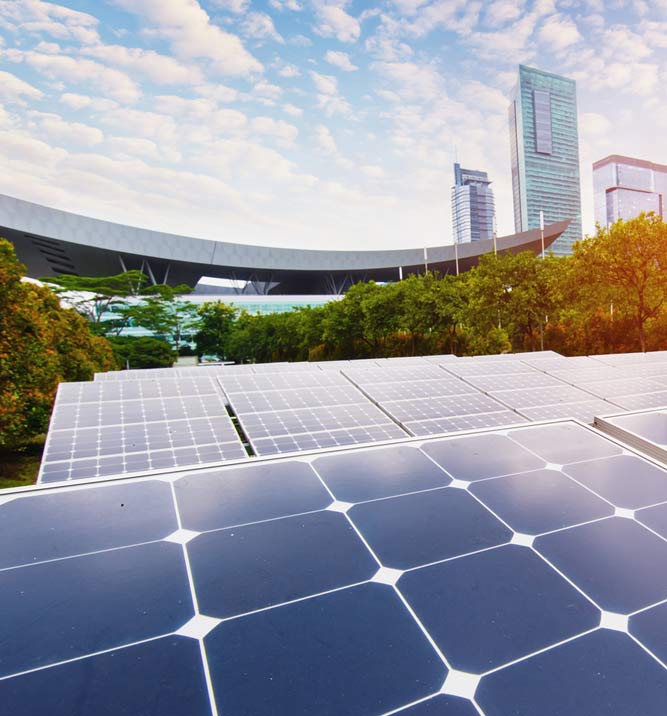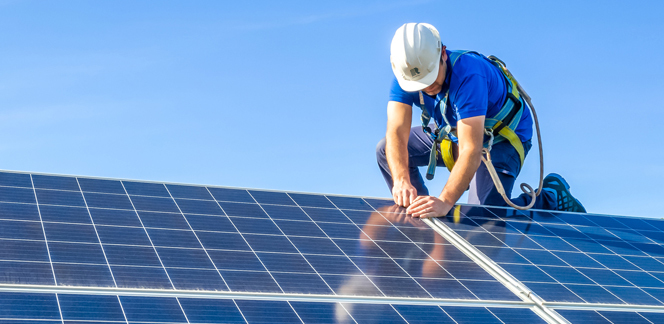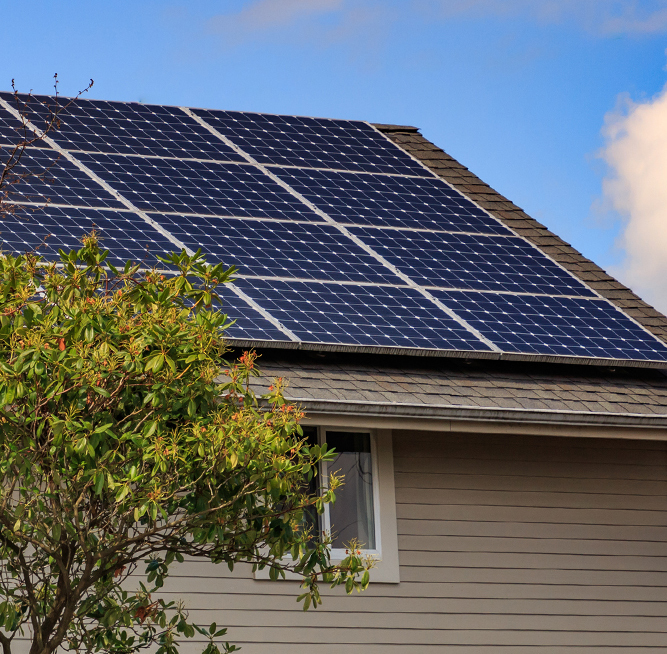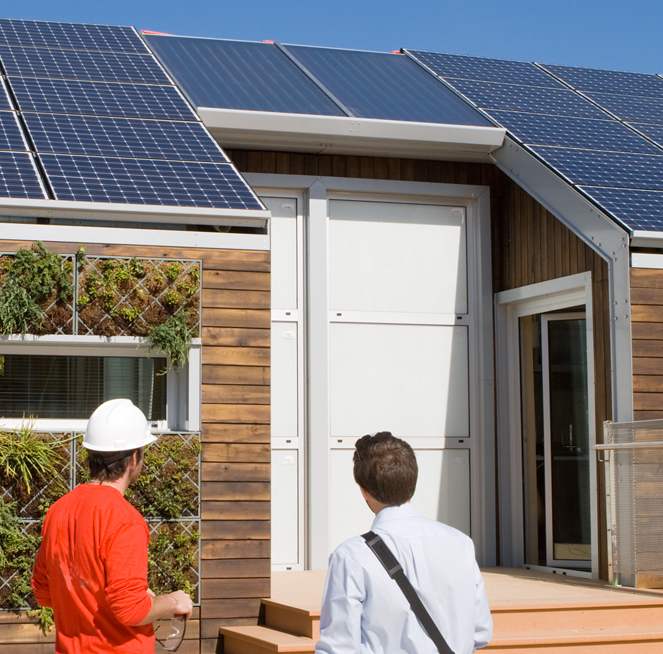Solar Panel Investment


How Much Do Solar Panels Cost?
Solar panels are undoubtedly the best alternative for economically-conscious individuals who want to power their homes and businesses. The benefits of using solar power can range from getting cleaner air to having freedom from rolling blackouts and electricity price fluctuations.
Is the cost of solar panels worth it? Some people are still hesitating to go solar because of the perceived cost of a solar power system and installation. The best approach to evaluating the value of investing in solar energy is to understand the actual cost and potential savings.
Here at Raycycle, we are notable for our transparency and quality of work. With this article, we aim to help those who are planning to invest in solar energy understand the following:
- The actual solar panel cost
- Factors that can affect the installation cost
- The usual return on investment for the solar panels
- Available state and federal solar tax credit and other incentives for switching to solar energy
Let us lay it out up front that most people can afford solar panel installation these days because of the available financing options and government solar incentives. Read on and discover why solar panels are worth it.
How Much Do Solar Panels Cost?
While switching to solar electricity can help achieve independence from conventional power grids, it is crucial to consider the startup cost of setting it up. Two main components can affect the overall cost to install solar panels – the panels themselves and the installation cost.
Here is a detailed breakdown of possible expenses when going solar for business properties or homes:
The Cost of Actual Solar Panels
Depending on the type and model, the average cost could range from $16,000 to $35,000. The three types of solar panels available today vary in efficiency and cost.
-
Polycrystalline (PV) solar panels: This variety of PV system is the most affordable option for residential solar panels. It can cost between $0.90 to $1 per watt – amounting to an overall cost of $6,000 to $9,000 for a 6kW residential solar panel system. However, the caveat is that it's less energy-efficient than the next type – monocrystalline.
-
Monocrystalline solar panels: The most energy-efficient option is the most expensive, costing $1 to $1.50 per watt. A 6kW system of monocrystalline panels would cost between $9,000 to $12,000.
-
Thin-film solar panels: This panel is inexpensive not because of the efficiency rating but because installation requires a large amount of space. The cost can range between $1 to $1.50 per watt. Thin-film solar panels are best for commercial and industrial settings.
But how much do solar panels cost for a 1,500 square foot house? Based on calculations from Modernize, outfitting a 6kW solar system to a home of this size would cost around $18,500 (assuming the installation consists of high-end solar panels amounting to about $2.50 to $3.50).

Many factors affect the actual price of the installation, which we will reveal in the following sections. For a quick estimate, the overall installation cost could range from $17,000 to $29,000.
Raycycle understands that the upfront cost can be hefty, which is why we offer flexible financing on top of the federal and state tax credits and rebates. For instance, solar rebates may qualify residents for a $200 refund for every kW of solar energy installed.
Factors that Influence Solar Panel Installation
Our company performs custom installation to every project, ensuring our clients a solar panel system suitable for their property and budget.
Below are some of the factors we discuss with our customers when evaluating how much investment they need when installing solar panels:
-
Installation type: Roof mounts are the most common solar panel installation. Depending on which part of the property can produce the most optimal solar energy, we can also do ground mounts and carport installations. This setup may require additional posts to anchor the panels to the ground, resulting in higher component and labor costs.
-
Type of equipment: The type of PV panel used has a significant impact on the total installation cost. The unwritten rule is that the higher the panels' efficiency, the pricier it gets. Additionally, it is essential to get battery storage for areas with almost constant cloud cover to keep solar energy consistent.
-
Number of panels: How many solar panels you need to install will have a large impact on not only the cost of the panels but the installation, as well. When determining how many panels your home or business would need, a solar installer takes into consideration the physical restraints (such as limited roof space) and energy needs.
-
Roof type: The amount of labor we perform and components for installation can vary. It depends greatly on the type of roof our clients have – whether it be metal, shingle, or flat roofs. For instance, we use a specific flashing piece for shingle roofs to anchor the panel racking properly.
-
Installation timing: We know Pittsburgh winters can be tough but you may be surprised to learn that installing solar panels in the winter is surprisingly efficient. If you have your solar panels installed during the winter, it allows your panels to be up and running during the following Spring, Summer, and Fall. This will generate credits to keep your residence or business covered the following winter.
-
Surrounding conditions: The number of panels a property requires will depend on the amount of shade in the installation area. We provide several installation options to generate the most solar energy – ensuring that clients will have a lower electric bill from their solar panel investment.
How to Determine Savings with Solar Energy
To help customers gauge the benefits of investing in solar energy, we provide these four variables to evaluate if they will save more. You can use SolarReviews’ online calculator to see how much a solar panel system can save on your energy costs.
-
Check your current electricity bill: When connected to power grids, the prices of consuming electricity fluctuates from state to state. Solar panel installation will significantly offset benefit those who have higher monthly energy bills and ease the pain of rising energy costs year over year.
-
Levels of sunlight: Cloudy days are out of the question since solar panels today can absorb light particles even if they're not under direct sunlight. However, areas with lots of trees or overshadowed by tall properties will cause the panels to operate at low efficiency only.
-
Regular energy uasge: The installation price will depend on how much energy the home or commercial establishment requires. We can easily help our clients determine how much they will need to pay for solar panels based on their regular energy consumption.
-
Federal and state incentives: The U.S. government encourages homeowners and business establishments to support solar installation. As a result, they offer many significant incentives to help taxpayers alleviate the initial cost, including the federal solar investment tax credit (ITC). Some states even offer cash back or property tax exemption for properties with solar panels. These incentives are meant to help offset solar panel installation costs and work in your favor.
-
Other incentives: In some areas, homeowners with solar panels are able to sell their excess credits, or power, that their panels produce to the local electrical company.

Solar panel installation will significantly benefit those who have higher monthly electricity bills to pay.

Frequently Asked Questions
The two main drawbacks of solar energy are the initial cost and space requirement. Fortunately, a combination of financing options and incentives can help make the financial investment more approachable.
Yes, solar panels are a good investment in 2023. Significant benefits include cheaper solar panel costs, ongoing tax incentives, and freedom from sudden price hikes by utility companies that rely on non-renewable energy sources.
No, it’s not a scam. However, shady companies perform improper installations or provide low-efficiency solar panels for a high price. To ensure professional installation and high-quality solar panels, reputable companies such as Raycycle are what solar energy switchers should look for.
On average, solar panels will start paying for themselves between six to 10 years, depending on the location. From then on, there will be no need to shell out money for the monthly electric bills or very minimal utility bills, depending on the setup.
Fortunately, there is no catch. We lay down everything upfront, including the cost of installation. It’s a long-term investment benefiting both the property owner and the environment.
Make a Risk-Free Investment with Solar Panels
Investing in solar panels is risk-free if handled by solar experts such as Raycycle. Clients favor us for our notable transparency and professionalism. We provide clients with assistance throughout the transition, including claiming incentives for their solar panel investment.
Ready to go solar? Contact us today, and we’ll help you make the transition to the best energy source to date.


